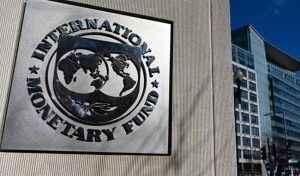ECC okays subsidy grant for kharif
ISLAMABAD: The Economic Coordination Committee (ECC) earmarked Rs24.26 billion in fertiliser subsidies for kharif season 2022, roughly the same amount the government had set aside for the current year crop.
“The ECC approved subsidy disbursement for kharif season 2022 through provinces using their existing mechanism on a sharing basis for phosphatic fertilisers along with a direction to strengthen the tracking system,” a statement said.
“The federal government share will be Rs12.13 billion.” Finance Minister Shaukat Tarin chaired the ECC meeting. The ECC also approved the minimum support price of wheat amounting to Rs2,250 from Rs1,950/40kg for the current fiscal.
It envisaged that the Punjab would procure four million ton wheat. The ECC was told that Sindh had unilaterally issued a notification in February and fixed the minimum support price of wheat at Rs2.200/40kg. Facing the same scenario and challenges of the higher cost of production, the Balochistan government had also notified the minimum support price of wheat for 2021-22 at Rs2,200/40kg. Sindh informed that it had fixed the target of 1.40 million ton with the cash credit limit to the tune of Rs77 billion.
Similarly, Balochistan had set its procurement target of 0.10 million ton with the cash credit limit of Rs6.20 billion. The federal cabinet had ratified the ECC decision on subsidy on fertilizer (DAP), cotton seed and whitefly-related pesticide for kharif 2021 on a sharing basis — federal government 75 percent and provincial government 25 percent. The provincial governments had agreed to use their existing subsidy disbursement mechanisms.
The Punjab had already developed an e-voucher scheme while KPK had a coupon system. Sindh had developed an e-card system and was in process to register small farmers for subsidy disbursement and Balochistan was also developing its own system. The federal government had already released Rs3.890 billion to Sindh and Rs0.541 billion to Balochistan for the schemes. There was no additional financial liability on the part of the federal government. The Sindh government had registered more than 40,000 small farmers for grant of subsidy while more were being listed through an e-card system.
As per the ECC decision, the provincial governments were responsible to disburse subsidy amount and submit funds utilisation certificates. The National Food Security and Research Ministry had submitted a summary on extension in date for subsidy disbursement to farmers on kharif during 2021 on fertilizer (DAP), cotton seed and whitefly-related pesticides under the Prime Minister’s Package for Agriculture in 2020 21. The federal government had already released Rs3.890 billion to Sindh and Rs0.541 billion to Baluchistan for the subject scheme.








